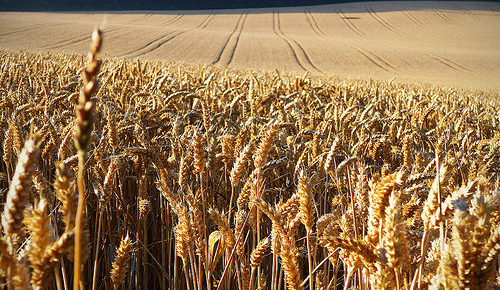Organic farming could represent a useful allied in the fight against climate change: organic cultivation shows in fact a better performance in terms of greenhouse gases (GHG) emissions than conventional by 60%.
It’s the noteworthy result of a study recently published on Journal of Cleaner Production
(among the authors, CMCC Foundation researchers Maria Vincenza Chiriacò, Simona Castaldi and Riccardo Valentini) highlighting that organic farming could represent a pathway to produce healthy food responding at the same time to the need of global climate change mitigation.
“Organic farming in Italy is a low-carbon agriculture, that is with a lower contribution to climate change in terms of GHG emissions, and may produce healthy food while reducing the impacts of agricultural practices, a major source of anthropogenic emissions responsible of about 24% of global GHG emissions”, says Maria Vincenza Chiriacò, CMCC researcher at IAFES – Impacts on Agriculture, Forests and Ecosystems Services Division (Viterbo premises).
The paper tries to contribute to the debate on the actual contribution to climate change of organic and conventional agriculture while analyzing the case study of wheat farming in Central Italy taking into account the wholemeal bread production process, starting from the cultivation of wheat to the bakery process and the final distribution to retail shops.
“The debate of the environmental sustainability of organic food is still open in the scientific community”, says Maria Vincenza Chiriacò involved in assessing the actual contribution to climate change of the different agricultural practices. “So far, reliable and comparable data were missing: studies are in fact not easily comparable as they refer to different kinds of crops, produced in different countries and at different scales and with various forms of agricultural management. In our study we examined two farmlands in central Italy with the same soil and climatic conditions and differing only for the management practices applied (of the organic and the conventional agriculture, respectively). Therefore this study represents indeed an optimal case study for a correct and scientifically sound comparison to analyzing and evaluating the carbon footprint of the wholemeal production with organic or conventional agriculture”.
The outcomes of the study are remarkable: if the carbon footprint is assessed per unit of cultivated area (hectare), wheat organic cultivation showed a better performance in terms of GHG emissions than conventional by 60%. Conventional agriculture shows a carbon footprint per hectare higher due to the higher use of raw materials (higher seed density, agrochemicals for fertilization and plant protection) respect to the same organic system.
Organic farming has therefore the potential for reducing the emissions of the agricultural sector while producing sustainable food and contributing to climate change mitigation, “even if implications of reduced productivity of organic farming and the possible consequence of more cultivated land should be considered”, says Maria Vincenza Chiriacò. “However, intensive agriculture with higher level of crop yields but higher impacts on climate and environment, seems not necessarily the solution to eradicate hunger and feed the 9 billion people expected in 2050. In fact, estimates from FAO report indicate that the current agricultural production supplies enough food to current and expected global population, but food security is not ensured due to causes as poverty, conflicts, food waste and climate change. Certainly, more research is needed to better explore the potential and improve productivity of organic farming.”
Moreover, the study provides new and specific data in terms of GHG emissions and contribution to climate change of the Italian wheat production, that could be useful also to improve estimates of the national greenhouse gas inventory for the agricultural and LULUF (land use, land use change and forestry) sector, annually carried out by ISPRA under the commitments of the UNFCCC and the Kyoto Protocol.
For more information, read also:




